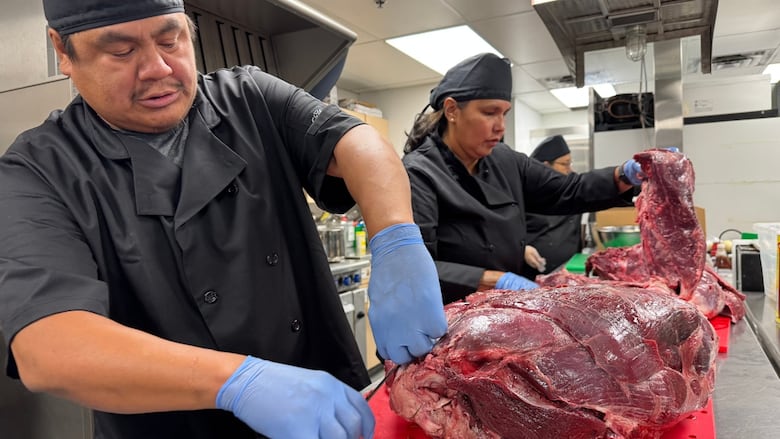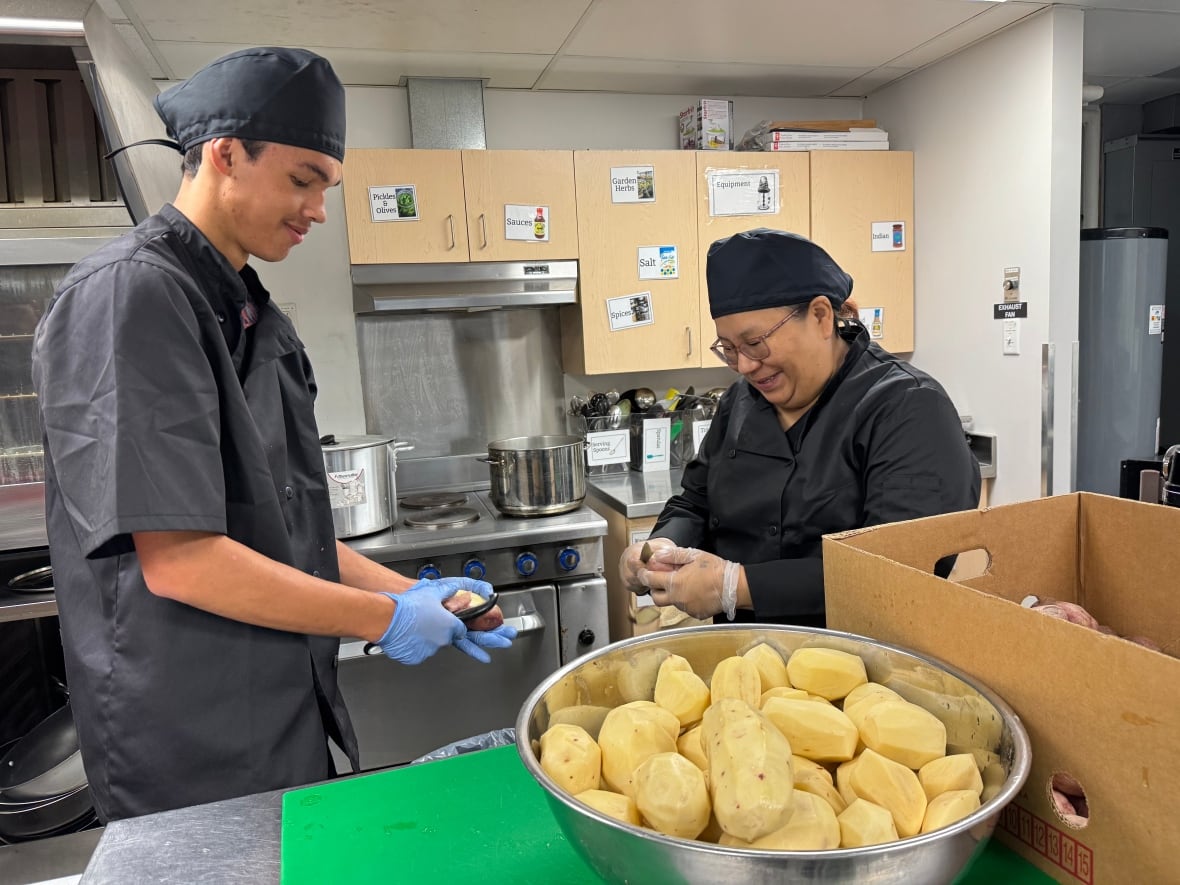It's not just food for the body — traditional meals feed First Nations elders' souls
Manitoba groups feed nearly 200 wildfire-evacuated elders every day

First Nations elders forced from their homes by wildfires are getting a little taste of home — thanks to volunteers coming together to cook traditional food for them.
"You are what you eat, right? The food is life," says Grace Masse, of the Manitoba Keewatinowi Okimakanak harvester program, as she cuts up fresh moose meat provided by Indigenous hunters.
"We have got some concerns about the other foods that they're getting served, and we just want to try to give them a little bit of what they want and be as healthy as possible when you're not in your own home," Masse says.
"My grandparents passed away, so I would want them to eat really well if they were taken away from their homelands, like, to be taken away from your home, not knowing if you're going to go back. So I'm doing this to help our people, to help all the elders and to take care of them."
Working beside her, Lester Balfour of Food Matters Manitoba says traditional food is an important way to keep the community together.

"When you're in the city so long and you're craving the wild food and the home-cooked meals … maybe give them a little bit of that taste of home."
WATCH | Cooks prepare a 'taste of home' for evacuated elders:
During the first 2025 wildfire season mass evacuation last month, MKO and Food Matters Manitoba got together to source meat, fish, poultry and vegetables.
While much of the food is donated, they continue to fundraise to cover costs.
"The first 20 days was funded completely by donations from Canadians," says Cynthia Neudoerffer of Food Matters Canada.
"The Tragically Hip got behind us and they ran [a] T-shirt sale campaign and ... donated a significant sum of money to us to support this initiative."

At first, they were cooking outside on propane stoves at the Leila soccer complex.
Then Harvest Manitoba invited them to use their commercial kitchen, which is making the process more efficient and comfortable.

On the menu today: fried moose, potatoes, vegetables, bannock and a special surprise — Saskatoon apple crumble with whipped cream.
By early afternoon, the food is ready for delivery to hotels around the city. At one, members of the Mathias Colomb Cree Nation wait patiently in a common room.
One shows photos of some of the food they've had to eat — wrinkled wieners, stale french fries, dry potatoes and wrinkled lettuce, as well as sandwiches that are impossible to eat for someone with no teeth.

As the food is distributed, Theresa Bighetty's face lights up.
"The moose? We eat this. That's our food. I grew up with the moose meat. I grew up in a bush. Yeah, I eat wild meat," she says, not waiting for a fork, picking up a piece of meat between her fingers.
"We like their food, MKO, when they come and feed us wild food."
While the Red Cross is providing basic needs like shelter and food, Neudoerffer says communities know what they need to care for their people "and being able to be part of supporting that is really important."

